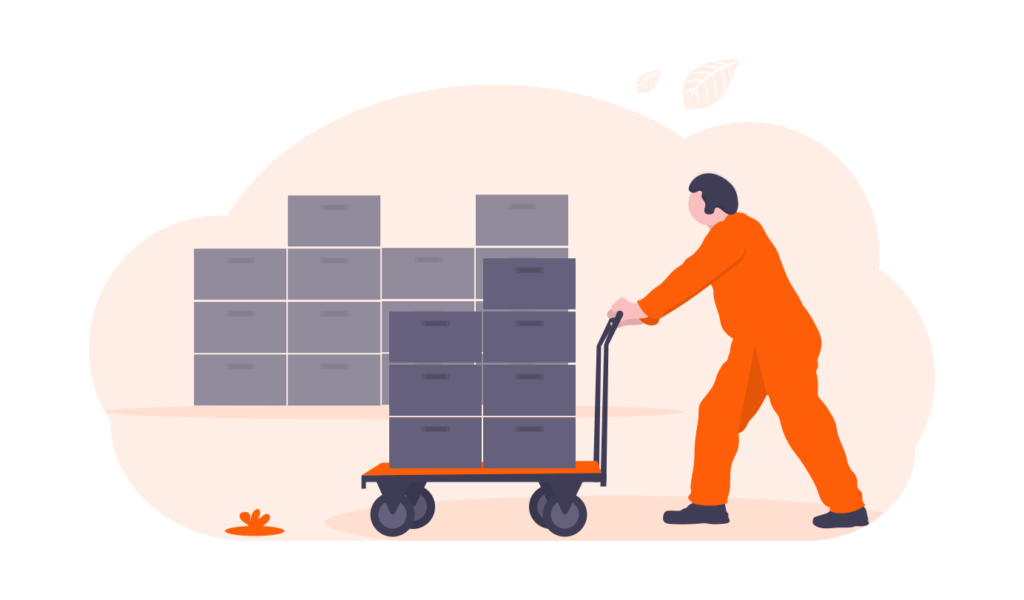No products in the basket.
Everything you need to know about returns, complaints and order cancellations when running an online store

- 4 min read
Key issues related to order cancellations, returns, complaints or liability for damaged goods, are usually discussed in the terms and conditions of a particular wholesaler. If not, it’s crucial to determine them and include relevant information in the contract before you enter any cooperation.
Wholesalers have a lot of freedom in shaping the policy of returns, complaints or liability for products already sold to another entrepreneur.
Therefore, online stores should take care of these aspects of cooperation to avoid unpleasant surprises and harmful provisions in the regulations.
Below we discuss the main aspects concerning returns, complaints and order cancellations.
1. Right of withdrawal within 14 days and return of goods within B2B cooperation
The cooperation between the owner of an online store and a wholesaler is a B2B cooperation in which, according to the law, the owner of the e-shop is not entitled to withdraw from a contract within 14 days and return the goods based on that right.
Only consumers have the right to cancel orders within 14 days without giving any reason, and an eshop owner purchasing goods for business purposes (which is confirmed by the relevant accounting and other documents) isn’t a consumer.
In this case, wholesalers have a lot of freedom in shaping their sales policies. Regulations may include information that companies cooperating with the wholesaler can cancel orders and make returns under specific conditions.
And some wholesalers offer such possibilities. This is how some of them regulate this issue:
- Some wholesalers allow order cancellation and return of goods (e.g. when they cooperate with entities ordering large amounts of goods).
Usually in such cases there is a special agreement regulating this kind of cooperation between a given wholesaler and eshop or these issues are included in regulations.
- Some wholesalers accept order cancellations or returns from all who pay a special fee. In this case, there is also a special contract between the wholesaler and the store, or the rules regulate these issues.
- Some wholesalers accept returns and sell the accepted products on a special subpage or a separate store to sell them (it doesn’t happen frequently).
Example: a large cosmetics wholesaler enables order cancellation and return of goods in various situations. After filling out a form describing the situation, in which the estore requests the possibility to cancel the order and return the goods, the wholesaler accepts the request.
2. Right to warranty for defects of goods - complaints within B2B cooperation
In case of B2B sales, the wholesaler is free to decide how to handle complaints. In its regulations, it may accept a complaint if the estore received an incorrect, defective or damaged product. However, the wholesaler may also not accept the complaint at all.
The wholesaler may also limit the complaint rights of the eshop only to specific defects of goods, or determine special deadlines and decide that a complaint is valid only when it’s made within a certain number of days.
The provisions of the regulations of the wholesaler are the most important here.
Most wholesalers enable making complaints – they generally try to cooperate with stores and accept complaints in different forms.
Example: A large toy wholesaler accepts complaints, but only in certain cases. After you fill out a special form, the wholesaler decides arbitrarily whether it’ll accept the complaint or not.
3. Benefits and burdens associated with purchased goods
When do the stores benefit from purchased goods and when do they need to deal with the associated burdens? When are ecommerce businesses liable for losing or damaging the goods?
If not regulated otherwise in the terms and conditions of the wholesaler, the online store bears the benefits, burdens and the risk of losing or damaging the goods as soon as the wholesaler hands them over to the carrier.
This point is extremely important because if the goods are damaged during transport, it’s the responsibility of the online store, not the wholesaler. Such matters should be discussed with the wholesaler before starting the cooperation and should be eventually agreed by means of negotiation.
Example: A wholesaler selling handbags informs on its website that if the owner of the eshop reports that the goods are damaged, it’s possible to request compensation.
4. Disclosure obligations regarding the products sold by the wholesaler within B2B cooperation
The wholesaler isn’t obliged to provide the online store with a range of information concerning, for example, the main features of the product or the total price.
However, in real life, it’s hard to imagine a situation when the wholesaler (that wants to sell goods) doesn’t provide the online store with basic information. Especially that it’s also implied by other laws that such information should be shared.
SHARE THIS POST
Facebook
Twitter
Pinterest
